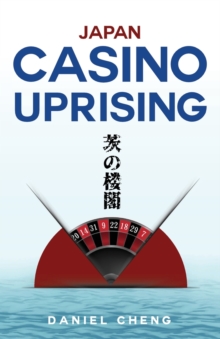A vision of an integrated resort rising above the turquoise waters of Osaka Bay in 2025 will not come to pass. It dashed hopes for a $10 billion complement to the Osaka World Expo, which is expected to attract 28 million visitors from the world over. Another grand resort plan at Yokohama was abruptly shelved in a political upheaval.
The euphoria was palpable when Japan finally legalised casino gambling in 2018 after trying for over twenty years. Up to ten casino resorts were to open across the country, which was touted to springboard Japan to become the world's largest casino market. It sparked a rush of Black Friday proportions by every casino company on the globe for the first three Japanese casino licences on the table. The casus belli on Japan's shores are twofold. It is home to a largely middle-class population of 125 million. The country is geographically in close proximity to China. Between the two, they checked all the boxes for a casino business. Where there is a large population, there is stable source of revenue. Where there is a middle-class demographic, there is disposable income. Where there is a casino in Asia, there is the ubiquitous Chinese gambler.
The wheels began to turn in Japan during a time when the Asian region was undergoing a casino revolution. The industry was swinging from its crucible in the west and pivoting east. The Las Vegas market had been completely dwarfed by Macau. The introduction of "integrated resorts" in Singapore shifted the paradigm in casino gambling. It skyrocketed the Marina Bay Sands resort to become the most profitable casino in the world. The Singapore market duopoly was enough to generate $5 billion in annual revenue. If Singapore's integrated resorts were the yardstick, then Japan holds even greater promise. The land of the rising sun is the world's third largest economy and possesses all the underlying attributes, in scale and otherwise, to put the Singapore casino industry in the shade. CLSA had projected that a dozen integrated resorts in Japan could deliver $40 billion a year. Morgan Stanley posited that a Tokyo metropolitan casino alone is capable of generating $6 billion in gross revenue, more than the Singapore market in its entirety, while an Osaka casino is worth $4 billion. The late Sheldon Adelson branded his Marina Bay Sands resort a "warmup" to the casino property that his company, Las Vegas Sands, plans to build in Japan. With all the heady forecasts, a long queue of investors had formed outside the offices of the Japanese government nerve centre in Nagatacho. Lawmakers were ecstatic. Businesses in Japan were similarly elated, eager for a slice of the lucrative casino pie. It was all systems go.
The picture turned vastly different over the course of four years. The investors are almost all gone except for two takers vying for the three concessions. The coronavirus had come and brought everything to a standstill. What was thought to be a walk in the park turned sideways for Japan every which way it turned. All these meant that the first integrated resorts in Japan will not welcome visitors until the next decade. Two of its primary actors, Sheldon Adelson and Shinzo Abe, did not live to grace their opening. What they had witnessed was the unprecedented uprising of the Japanese people, which thwarted their plans. For a country which brought the world the "Kanban" concept of just-in-time manufacturing, the dilatory pace to realise casinos in Japan is an oddity. The account between these covers is but the prologue of the Japan casino story.

